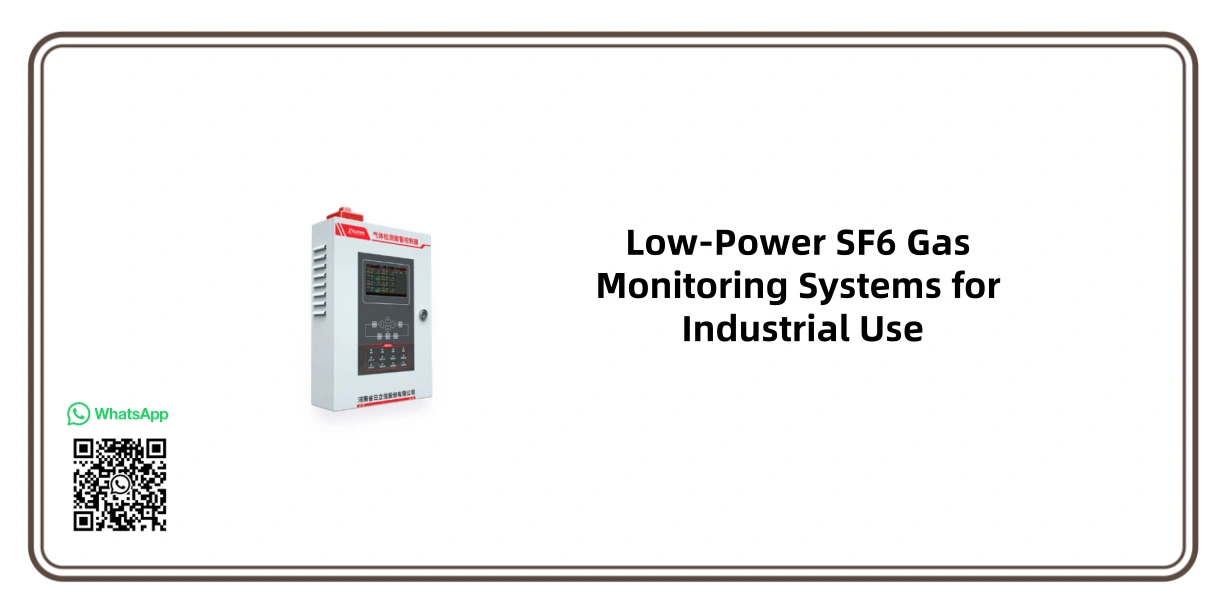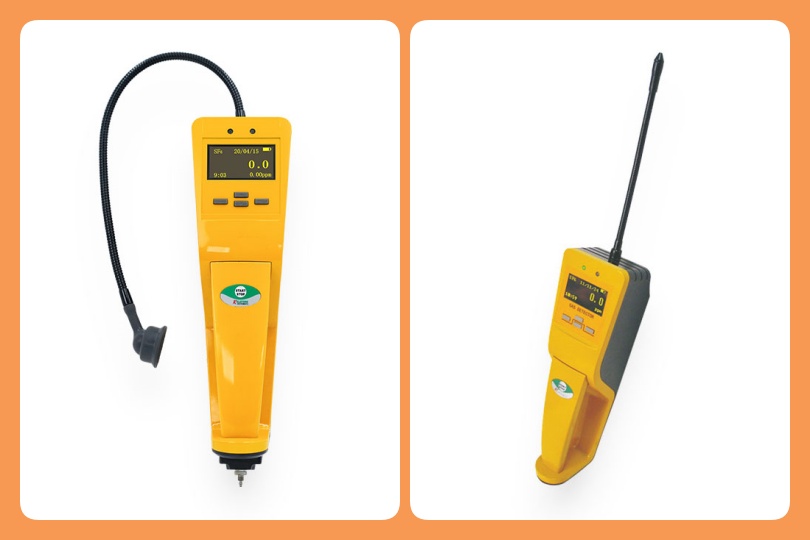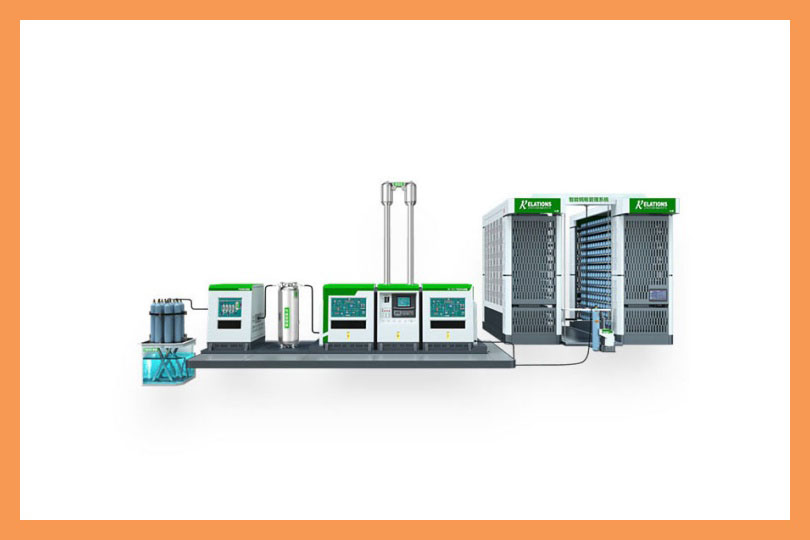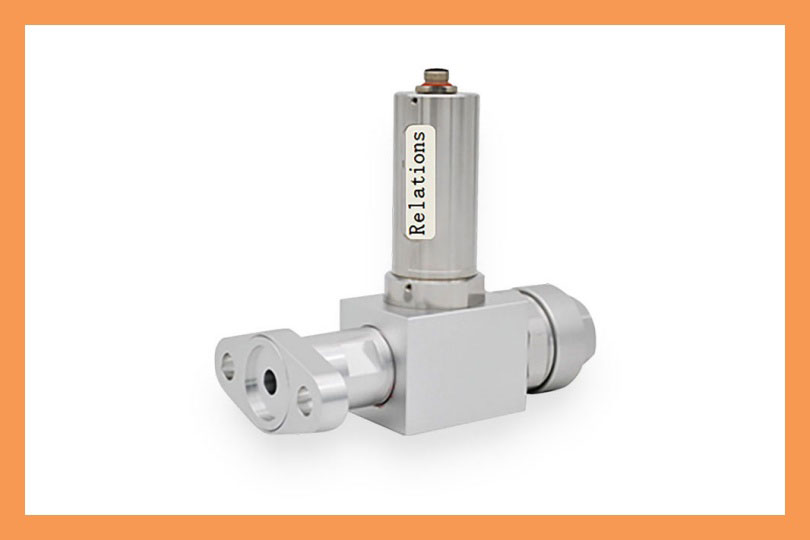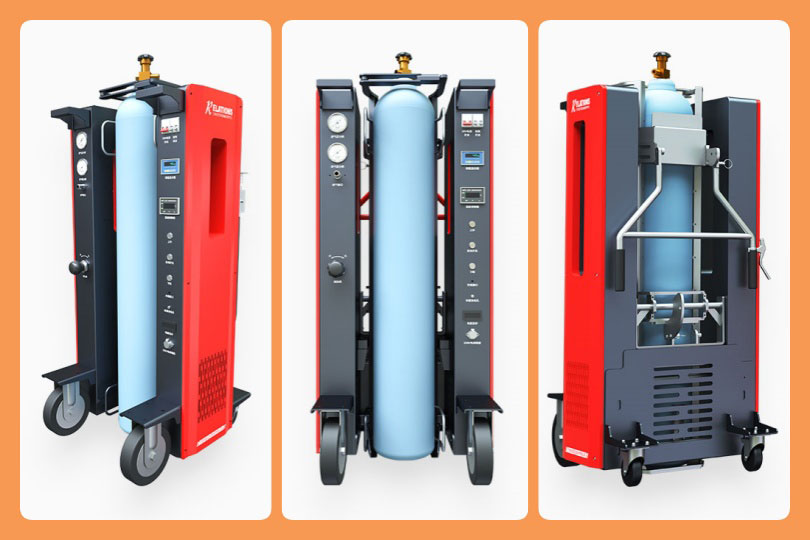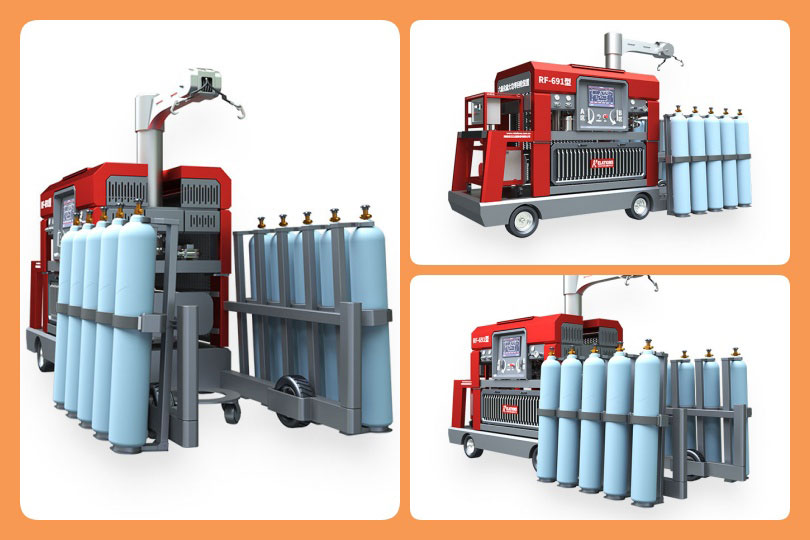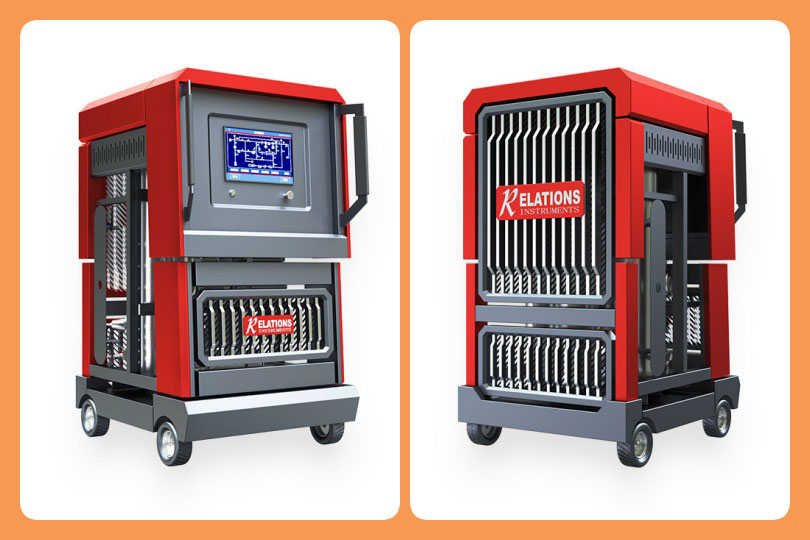Low-Power SF6 Gas Monitoring Systems for Industrial Use
Date
2025-11-10
[email protected]
Website
www.sf6gasdetector.com
Get Solutions And Quotes
Low-Power SF6 Gas Monitoring Systems for Industrial Use
Sulfur hexafluoride (SF6) is irreplaceable in high-voltage equipment (circuit breakers, switchgear, transformers) for its superior insulating and arc-extinguishing properties. Yet with a global warming potential (GWP) 23,500 times that of CO₂ over 100 years, strict SF6 management is non-negotiable. Low-power SF6 gas monitoring systems emerge as a game-changer—delivering reliable monitoring with minimal energy use, ideal for industrial settings, remote sites, and sustainability-focused operations. This guide breaks down their core value, features, benefits, applications, and selection criteria.
Why Low-Power SF6 Gas Monitoring Systems Are Indispensable
Traditional SF6 monitoring systems often face power constraints in remote or large-scale facilities. Low-power models solve this while addressing critical needs:
- Regulatory Compliance: Meet EU F-Gas, IEC 60480, and EPA requirements with real-time leak detection and emissions tracking, avoiding fines up to €300,000.
- Energy Efficiency: Perfect for off-grid renewable energy sites or substations with limited power—reducing operational costs by 30% vs. high-power alternatives.
- Early Leak Detection: Identify leaks as low as 0.1 ppm to minimize SF6 loss (cutting gas replacement costs by 40%) and environmental impact.
- Safety & Reliability: Ensure SF6 concentrations stay within safe limits (0-10,000 ppm) to protect personnel, while maintaining equipment performance and reducing downtime.
Core Features of Top Low-Power SF6 Gas Monitoring Systems
Low-power SF6 monitoring systems blend energy efficiency with industrial-grade performance, offering these key features:
- Ultra-Low Power Consumption: Operate on ≤5W (standby ≤1W), supporting solar or battery power (8,000+ hours runtime) for remote deployments.
- Real-Time Monitoring & Rapid Response: Deliver readings in ≤3 seconds, with visual/audio alerts for leaks or abnormal gas levels.
- Wireless Connectivity: Bluetooth, LoRaWAN, or 4G integration enables remote data access, eliminating costly wiring and supporting flexible installation.
- Compact & Non-Intrusive Design: Lightweight (≤3 kg) and easy to mount on existing equipment, requiring no major infrastructure modifications.
- Data Logging & Reporting: Store 10,000+ readings for compliance audits, with automated reports aligned to regulatory standards.
- Durability: IP65-rated dust/water resistance, operating in -40°C to 60°C—suitable for harsh industrial or outdoor environments.
Key Benefits of Low-Power SF6 Monitoring
- Cost Savings: Low energy use cuts utility bills, while early leak detection avoids expensive equipment repairs and gas waste.
- Sustainability Alignment: Reduces carbon footprint from both energy consumption and SF6 emissions, supporting ESG goals.
- Enhanced Flexibility: Deploy across scattered sites (e.g., wind farms, distributed substations) without power infrastructure constraints.
- Simplified Operations: Intuitive interfaces and remote monitoring reduce on-site staffing needs, streamlining maintenance.
- Long-Term Reliability: Low-power components have longer lifespans, reducing replacement and maintenance frequency by 25%.
Critical Applications Across Industries
Low-power SF6 gas monitoring systems adapt to diverse industrial settings:
- Power Generation & Distribution: Monitor substations and grid equipment, even in remote rural areas with limited power.
- Renewable Energy Facilities: Ideal for wind/solar farms—solar-powered models track SF6 in off-grid energy storage systems.
- Manufacturing Plants: Monitor high-voltage production equipment, ensuring compliance and minimizing downtime on assembly lines.
- Research Laboratories: Safe, low-energy monitoring for SF6 used in testing, aligning with lab safety and environmental standards.
- Telecommunication Infrastructure: Protect critical high-voltage networks in remote telecom sites, maintaining connectivity reliability.
How to Select the Right Low-Power SF6 Gas Monitoring System
Prioritize these factors to match your operational needs:
- Power Efficiency: Verify ≤5W operating power and compatibility with solar/battery sources for remote use.
- Sensitivity & Response Time: Choose 0.1 ppm detection capability and ≤3-second readings for early leak identification.
- Connectivity Options: Opt for LoRaWAN or 4G for long-range remote monitoring, Bluetooth for on-site data access.
- Durability & Environmental Rating: Ensure IP65 protection and wide temperature tolerance for your operating conditions.
- Manufacturer Credibility: Select ISO 9001-certified brands with industry experience, offering 2+ year warranties and 24/7 technical support.
Low-power SF6 gas monitoring systems strike the perfect balance between efficiency, reliability, and sustainability—addressing power constraints while meeting strict regulatory and operational demands. Their ability to deliver real-time data, reduce costs, and support remote deployments makes them essential for industries relying on high-voltage equipment.
As global focus on greenhouse gas reduction intensifies, investing in low-power SF6 monitoring isn’t just a compliance measure—it’s a strategic choice to enhance operational resilience, cut costs, and demonstrate environmental responsibility. Whether for utilities, renewables, or manufacturing, these systems future-proof your SF6 management against evolving regulations and energy challenges.
